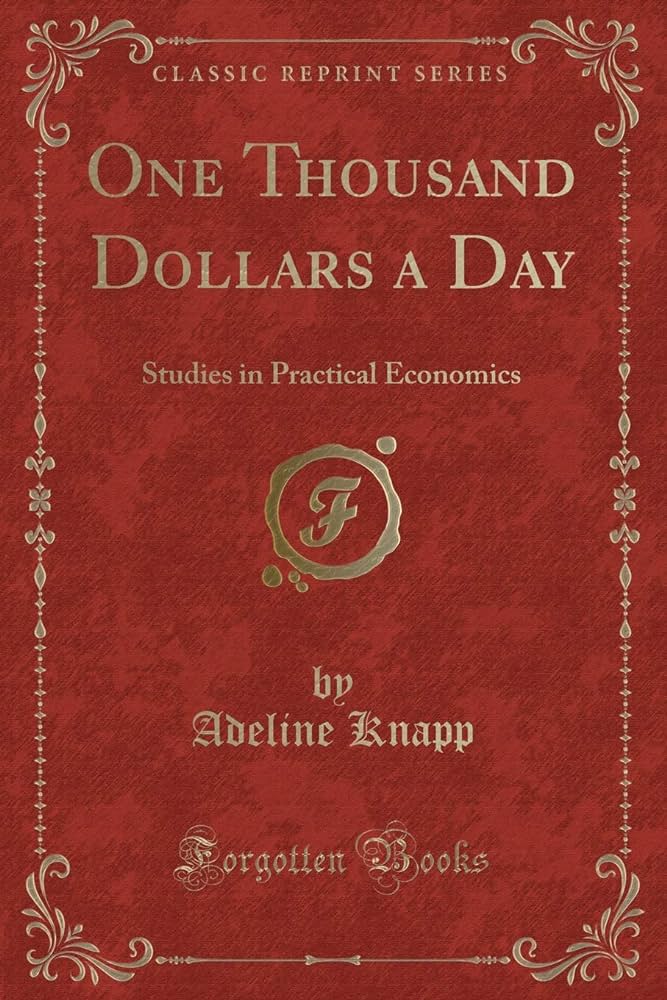
A reproduction of a historical book that dates its original writing back to more than a century ago in the late 1800s, One Thousand Dollars a Day still holds so much significance in its evaluation of the very nature of society as a whole.
The book itself doesn’t consist of much content and is relatively short and yet I would argue that is part of the very beauty of this book. With such a brief story does it deliver an approach that is infinitely important when understanding why things are the way they are. From what I personally felt, there isn’t much of a climax or whatnot that would exhilarate you which is why I would not recommend this if you are mainly looking for an entertaining and thrilling novel. On the other hand if you are reading to mainly learn, reflect and broaden your understanding of the world then I believe this book is worth putting on your list of books to read. Now without further ado let’s cut straight into the content.
The book takes place within America in the late 1800s (indicating the author's intention to suggest a reflection of the time period in itself), a time where poverty was widespread within America like a disastrous plague, and where society struggled and the people desperately pleaded for assistance against the suffering that had been inflicted upon them by the horrid standards of living. As a result (note: this specific part of the book is not historical), the government decides to lend everyone one thousand dollars a day and hence the title of the book.
Long story short however, what seemed like a heaven on the surface resulted in disaster, society had collapsed. Such a finding reveals an underlying truth about society that Adeline Knapp perhaps hoped to suggest to her fellow Americans during her age, a fact that we’d be good to acknowledge too – that poverty is innate and inevitable to occur within a society. To try to get rid of it would imply a loan of funds to everyone which would result in the same chaos portrayed in this book.
Knapp’s suggestion offered a revolutionary perspective to the struggle against poverty, that rather than struggling against poverty as a whole, the efforts of the people ought to be directed towards uplifting each other in a cooperative and mutual manner as to undermine the reaches of poverty.
The ideas grasped from Knapp’s book can allow us to better understand our society today and understand why poverty is still such a big problem. Furthermore, as the time passes and the young generation prepares to inherit the responsibility of caring for society, it becomes evermore vital to understand how to combat this great issue of society.
In the end, this book was written to influence a better change for society and offer ideas to assist in the effort – a commendable cause that served as not only a calling for the society of its time but also to the future generations that will continue to uphold mankind.